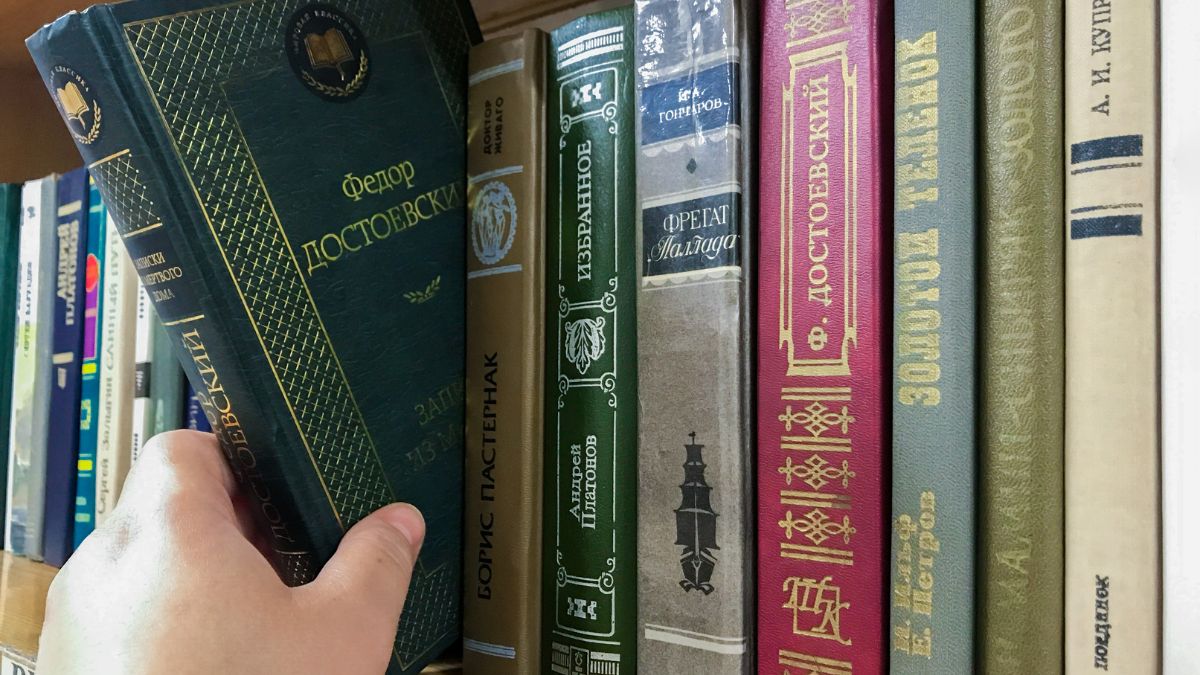Kalidasa (Classical Sanskrit Literature)
Kalidasa (Classical Sanskrit Literature)
Fyodor Dostoevsky (Russian Novels)

Fyodor Dostoevsky (Russian Novels)
In the vast, soul-stirring expanse of Russian literature, there looms a figure of colossal genius and profound depth: Fyodor Dostoevsky. His novels, intricate tapestries woven from the very fabric of human existence, are not merely stories but profound explorations of the psyche and spirit. In Dostoevsky’s world, each page is a journey, each character a universe unto themselves, pulsating with the raw, unvarnished truths of the human condition.
Imagine stepping into the bleak yet mesmerizing streets of 19th-century Russia through Dostoevsky’s eyes. Here, the air seems charged with a palpable tension, a blend of despair and hope, cynicism and faith, a dichotomy that Dostoevsky masterfully captures. His characters are not mere figments of fiction but living, breathing entities, each grappling with existential dilemmas, moral quandaries, and the eternal struggle between good and evil.
Take, for instance, “Crime and Punishment,” a masterpiece that delves into the troubled psyche of Raskolnikov, a young intellectual driven to murder. Dostoevsky invites us into the labyrinth of Raskolnikov’s mind, where we witness a battle as old as time: the human soul wrestling with guilt, redemption, and the quest for meaning. The novel is a psychological odyssey, a deep dive into the murky waters of conscience, and a stark reminder of the complexities of moral judgment.
Then there is “The Brothers Karamazov,” Dostoevsky’s magnum opus, a monumental work that explores the deepest philosophical and theological questions. Here, we meet the Karamazov family, each member embodying different facets of human nature – faith, doubt, passion, reason. Through their intertwined stories, Dostoevsky conducts a symphony of human emotion, at times a tragic dirge, at other times a hopeful hymn. The novel’s exploration of faith, free will, and the problem of suffering resonates with a haunting, timeless quality.
In “The Idiot,” we encounter Prince Myshkin, the embodiment of Dostoevsky’s ideal of the ‘positively beautiful man.’ Myshkin’s innocence and naivety, set against the backdrop of a society rife with cynicism and manipulation, create a poignant contrast. Through this narrative, Dostoevsky challenges us to rethink our notions of sanity and madness, purity and corruption.
And how can one forget “Notes from Underground,” a foray into the mind of an unnamed narrator living on the fringes of society. This groundbreaking novel delves into existentialism, exploring themes of individualism, freedom, and the absurdity of human existence. The narrator’s introspections and ramblings are a mirror to our inner chaos, echoing the existential angst that pervades the human experience.
Dostoevsky’s novels are not just stories; they are philosophical treatises, psychological case studies, and moral inquiries rolled into one. His deep empathy for humanity, combined with a keen understanding of the complexities of the human soul, makes his work profoundly moving and universally relevant.
In the end, to read Dostoevsky is to embark on a journey into the depths of the human heart. His novels are a testament to the enduring power of literature to transcend time and place, to speak to the eternal and the universal in the human experience. In Dostoevsky’s works, we find not just the essence of Russian soul but the reflection of our own, laid bare in all its glorious, tumultuous, and awe-inspiring complexity.